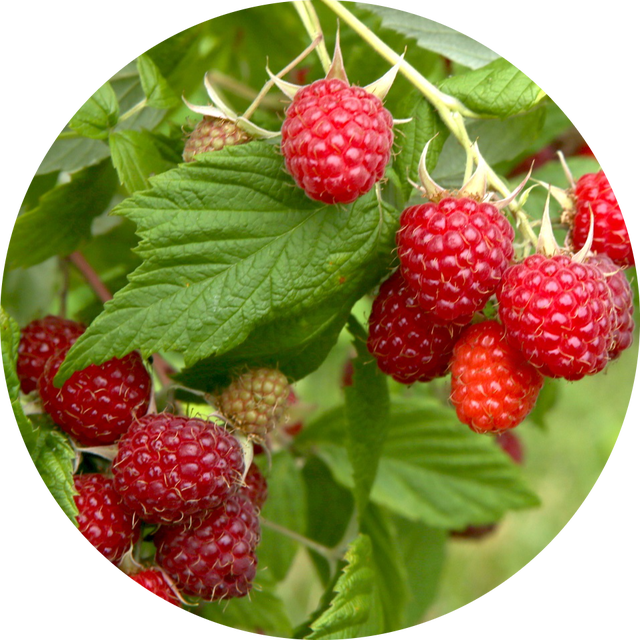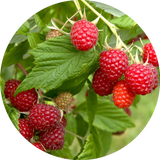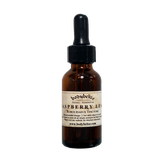- PLANT MEDICINE
- >
- Tinctures
- >
- RASPBERRY LEAF TINCTURE
RASPBERRY LEAF TINCTURE
Family: Rosaceae
Genus: Rubus
Species: idaeus
Synonyms: Rubus strigosus, Rubus leucodermis
Common Names: Raspberry leaf
Parts Used: Leaves
Main Actions: Astringent, tonic
Other Actions: Antioxidant, anti-inflammatory
Description: Raspberry leaf is a deciduous perennial shrub with serrated green leaves and red berries, native to Europe and Northern Asia.
Tribal and Herbal Medicine Uses: Traditionally used in herbal medicine for menstrual issues, pregnancy support, diarrhea, and oral health. Red raspberry leaf is traditionally used during pregnancy to tone the uterus, in preparation for labour and birth. This tincture is a high-potency concentration, replacing the need to drink copious amounts of the herbal tea to achieve the same therapeutic dose. It can be started at any stage of your third trimester, but most commonly women start taking it between 34-36 weeks. Also known as “the woman’s herb,” it is naturally high in vitamins and minerals we need for female health specifically: magnesium, potassium, iron, calcium, and vitamins B, A, C, and E. The high level of B vitamins in particular makes it useful for relieving nausea, soothing leg cramps, and improving sleep. Raspberry leaf is great for the skin if used externally to sooth sunburn, eczema, and rashes and, when used internally, to help alleviate PMS, menstrual troubles, heavy bleeding and infertility. Also, swishing raspberry leaf tincture is great for the gums and can help alleviate the symptoms of gingivitis or gum disease.
Plant Chemicals: Flavonoids, tannins, ellagic acid, vitamins C and E, minerals.
Biological Activities and Clinical Research: Limited clinical research supports its use in pregnancy for easing labor, reducing complications, and promoting postpartum recovery.
Current Practical Uses: Widely used in herbal teas, supplements, and topical preparations.
Main Preparation Method: Infusion
Main Actions (in order): Astringent, tonic
Main Uses: Menstrual support, pregnancy support, diarrhea
Properties/Actions Documented by Research: Tonic, astringent
Other Properties/Actions Documented by Traditional Use: Antioxidant, anti-inflammatory
Cautions: Generally regarded as safe, but caution advised in pregnancy, particularly during the first trimester.
Traditional Preparation: Infusion of dried leaves
Contraindications: None known in normal doses; excessive use during pregnancy cautioned.
Drug Interactions: None reported
Recommended dosage: 1-2ml taken in a small glass of water or juice 2 x daily on an empty stomach for better absorption.



